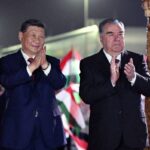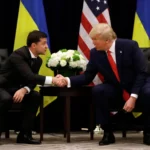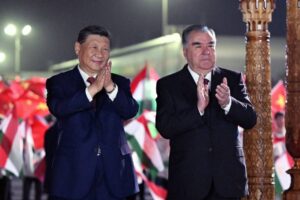As global leaders converge in New York for the 78th U.N. General Assembly this month, the United States and China, already embroiled in a fierce contest for expanded global influence, have unveiled distinctive visions for the next era of international order.
“One era is ending, a new one is beginning,” said U.S. Secretary of State Antony Blinken as he outlined the Biden administration’s ambitious blueprint for the future on Wednesday.
Blinken said the United States is building up alliances to strengthen democracies, promote human rights and enhance economic development.
Lambasting China for supporting autocratic regimes worldwide and Russia for launching an unjust war against Ukraine, Blinken declared the United States’ commitment to nurturing alliances that bolster democracies, champion human rights and foster economic development.
“We will advance this vision guided by a sense of enlightened self-interest that has long animated U.S. leadership at its best,” he said.
Meanwhile this week, Beijing unveiled its Proposal of the People’s Republic of China on the Reform and Development of Global Governance.
“Humanity is once again at a crossroads,” said the 5,400-word Chinese proposal, which calls for greater multilateralism in international affairs with a reformed United Nations and an expanded Security Council at its core.
“Together, we will create a better future for humanity,” the proposal concluded.
Persistent doubts
The United States and China both express the desire for a global governance system with increased participation from developing countries. Both agree on the need to expand the U.N. Security Council. But the expansion has remained a topic of heated debate without concrete action from either side.
Also, doubts loom over the true intentions of the two superpowers.
“What both sides say is not what they really want,” said Hossein Askari, a professor of politics at George Washington University in the U.S. capital.
Beneath the veneer of multilateralism, the major powers may seek to safeguard and expand their own interests, Askari told VOA.
“So, China, Russia say that they want a new multipolar world with no dominant power. But that is their sweet talk. They espouse new power for the [Global] South in order to get their support in the struggle with the U.S.,” said Askari.
“The U.S., on the other hand, wants to stay at the top of the unipolar world. The U.S. needs new alliances around the world to challenge a rising China,” he noted.
Building a truly multipolar world would necessitate the superpowers willingly ceding or sharing their unequal influence on the international stage to empower the majority of less powerful countries.
“This is not necessarily a ‘win’ for the vast number of developing states,” said Jeffrey Taliaferro, professor of political science at Tufts University in Medford, Massachusetts.
“While Global South states may obtain a bit more ‘voice’ in forums like the BRICS, the G20 and other venues, the two superpowers will still call the shots,” Taliaferro told VOA.
The United States and its Western allies — historically the architects of post-World War II and post-Cold War global institutions — have formed formidable alliances to protect and advance their common interests.
Simultaneously, China, despite criticism of its one-party political system, has been gaining traction in global public opinion as a burgeoning world power.
A recent survey conducted by the George Marshall Fund, or GMF, indicates that younger generations in the United States, Canada, Turkey and Europe are more inclined to predict a shift toward multipolarity, with China replacing the United States as the world’s most influential actor, and the European Union emerging as a more influential third player.
Human rights
One of the central points of divergence between the United States and China is their stance on universal human rights.
U.S. officials emphasize the importance of promoting and protecting human rights, including those of women and minorities, as a core element of their foreign policy.
Blinken envisioned this as “a world where international law and the core principles of the U.N. Charter are upheld, and where universal human rights are respected.”
China, on the other hand, has said there is not a one-size-fits-all approach to promoting and protecting human rights because of varying historical backgrounds, cultural heritages, social systems and levels of socioeconomic development among nations.
Accusations of human rights abuses by China, such as the alleged genocide of Uyghur Muslims and restrictions on freedom of speech, have led the U.S. to argue that crimes against humanity should not be treated solely as internal matters of a state.
The U.S. aims to protect against a world where authoritarian regimes prioritize regime preservation and enrichment at the expense of their people and neighbors, according to Blinken.
The United States has faced criticism, though, for appearing to grant preferential treatment to some repressive regimes, leading to noticeable divisions in perceptions of the major powers, even within Western countries.
The GMF survey suggests that compared with older adults, younger respondents are more likely to view U.S. influence negatively and view Chinese and Russian influence more favorably.
As the world’s preeminent economic and military powers chart the course for a new world order, concerns mount over potential risks, including military confrontations and even nuclear conflict.
“A direct military confrontation between the U.S. and China or the U.S. and Russia would be catastrophic, since all three are nuclear-armed superpowers,” said Taliaferro.
















